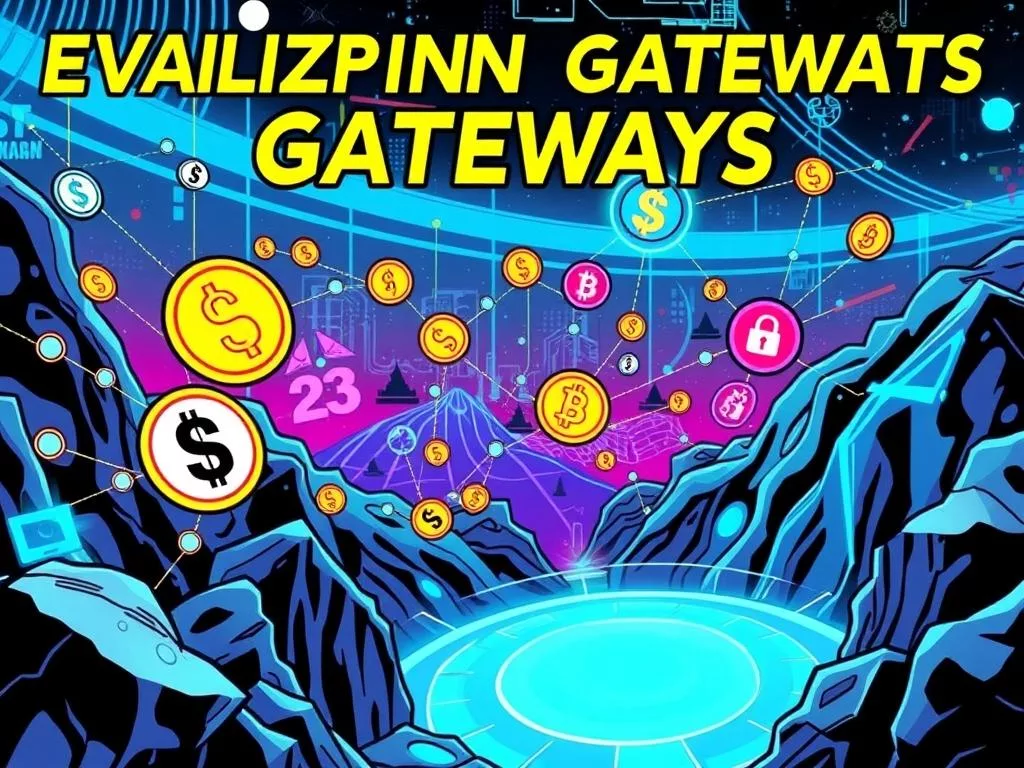The digital world is changing fast, and knowing the best online payment options for your business in 2024 is key. Online transactions are expected to hit over $11 trillion this year. It’s important to find good eCommerce payment solutions to stay ahead.
With more people using digital payments, my business needs to keep up. This means adapting to new trends to meet customer needs well.
Payment gateways in 2024 come with cool features like end-to-end encryption and strong fraud detection. This guide will look at five top online payment processors. We’ll see how they make transactions smoother and safer. Knowing these options helps me choose the best for my business, focusing on speed and customer happiness.
Understanding Payment Gateways and Processors
For any eCommerce business, knowing what a payment gateway is is essential. It’s a secure software that lets customers pay merchants. Payment processors, on the other hand, connect to banks and credit card networks to finish transactions. Both are vital in the world of online payments.
Payment gateways work by linking up smoothly and keeping data safe. They follow strict security rules to protect customer info. There are also integrated payment solutions that make transactions easier without extra software.
Platforms like PayPal, Stripe, and Square offer different benefits. For example, PayPal charges 3.5% plus $0.49 per transaction. Stripe, on the other hand, has a lower fee of 2.9% plus $0.30 per transaction. Knowing these details helps choose the right payment option for your business.
New businesses often pick Square or Stripe for their flat fees and simplicity. These platforms offer both payment gateway and processor services in one. This makes transactions smoother.
Choosing a full-service payment system can solve integration problems. Businesses might also look into dedicated merchant accounts for lower fees. But, these can take longer to get approved. Understanding these options helps me pick the best payment solutions for my business.
What Makes a Payment Gateway Essential for Your Business?
Payment gateways are key in today’s digital world. With eCommerce expected to hit 24% of retail by 2026, a good payment solution is vital. They offer a safe way to handle online payments, keeping customers’ data secure.
Payment gateways offer many benefits. They let customers pay in their preferred way, boosting sales. They also make transactions smoother, helping businesses get paid faster.
Choosing the right payment gateway is important. Look at fees, reliability, and payment options. Knowing the costs helps with budgeting.

Security is a big deal with payment gateways. They use strong encryption to protect financial info. This makes customers more likely to buy, helping sales grow.
Good customer service from payment gateways is also key. It helps avoid problems and keeps business running smoothly. Having the right payment gateway improves user experience and keeps finances safe. For more on payment gateways, check out this guide.
5 Options to Take Online Payments – 2024
Exploring the best payment methods for 2024 is key for businesses. They need efficient and secure ways to handle transactions. Here are five top choices that meet different needs:
- PayPal: It’s easy to use, perfect for those new to online payments. Its global trust and simple setup make it great for beginners.
- Stripe: It’s flexible and offers easy analytics. Plus, it has many plugins for smooth integration with e-commerce sites.
- Shopify Payments: Designed for online stores, it simplifies payment processing. This makes managing sales easier for eCommerce businesses.
- Square: It’s a hybrid option for businesses online and offline. Its payment features work well on various platforms.
- HubSpot Payments: Great for B2B sales, it streamlines billing with payment links. This improves customer interaction and efficiency.
Each option has unique benefits that fit different business needs. This ensures a good match for various operational styles.
| Payment Option | Ideal For | Key Features |
|---|---|---|
| PayPal | First-time Users | Easy setup, globally trusted |
| Stripe | Flexible Integrations | Analytics, extensive plugins |
| Shopify Payments | eCommerce Stores | Integrated solution, streamlined sales |
| Square | Hybrid Businesses | Online and offline compatibility |
| HubSpot Payments | B2B Sales | Payment links, simplified billing |
Evaluating the Best Payment Gateway Services
When looking at payment gateways, we need to consider several key points. Businesses want a smooth checkout process. They look for gateways that accept many payment methods, are easy to set up, and keep transactions safe. It’s important to find gateways that support all major credit cards and have a simple setup.
Security is a top priority. Gateways that follow PCI-DSS standards help protect transactions. This ensures that customer data stays safe.
Each gateway has its own strengths. For example, NOWPayments supports over 300 cryptocurrencies. This makes it great for businesses worldwide. It also has lower fees than Stripe and PayPal and keeps payments secure with its non-custodial model.
Helcim is known for its good prices and discounts for lots of transactions. Square is easy to use for in-person payments. It also has features like invoicing and subscription management.
Stripe is famous for its wide range of payment options. It can handle invoices, subscriptions, and international payments. Braintree, a PayPal company, is popular for non-profits. It offers special accounts and payment plans for them.
To make things clearer, here’s a table comparing these top payment gateways:
| Payment Gateway | Monthly Fee | Transaction Fee | Key Features |
|---|---|---|---|
| NOWPayments | None | Lower than Stripe and PayPal | Supports 300+ cryptocurrencies, non-custodial model |
| Helcim | None | Variable based on volume | Volume discounts, low-cost gateway |
| Square | None | 2.6% + 10¢ per transaction | POS system, invoicing, subscription management |
| Stripe | None | 2.9% + 30¢ per transaction | Invoices, subscriptions, international transactions |
| Braintree | None | Variable, competitive rates | Focused on subscription processing, tailored for nonprofits |

Comparative Overview of Top Payment Options
It’s key to compare different payment gateways for online businesses. This helps us see what each service offers. Below, we have a table that shows important details like fees, features, and user base for Stripe, PayPal, and more.
| Payment Service | Transaction Fees | Standout Features | Suitable For |
|---|---|---|---|
| PayPal | 2.99% + $0.49 per transaction (U.S.), 4.4% for international | Widely accepted, strong consumer trust | Businesses with a global audience |
| Stripe | 2.9% + $0.30 per card charge, additional fees for manual entries and international transactions | Flexible integrations, detailed feature analysis capabilities | Developers and tech-savvy businesses |
| Square | 2.9% + $0.30 for online, 2.6% + $0.10 for in-person | Great for small businesses, no monthly fees | Business with diverse sales channels |
| Shopify Payments | Varies based on plan ($39.00 to $399.00 monthly) | Seamless integration with Shopify store | eCommerce-focused businesses |
| HubSpot Payments | Varies based on B2B arrangements | Simplifies payment links, ideal for service-based businesses | B2B applications |
When comparing Stripe and PayPal, the fees are a big difference. PayPal charges a fixed fee, which can change with currency. This can affect costs. Each service has special features for different business needs. So, it’s important to look at these features when deciding.
Benefits of Choosing the Right Payment Processor
Choosing the right payment processor brings many benefits to your business. It helps speed up cash flow, getting money into your account fast. This is very important for small businesses, where managing cash flow is key to keeping operations running.
Another big plus is improving customer experience. A smooth and secure payment process builds trust with customers. This trust can lead to more sales, as customers are more likely to finish their purchases.
It’s also important to look at the fees of payment processors. For example, PayPal and Stripe charge about 2.9% plus $0.30 per transaction. Square’s fees are a bit lower, at 2.6% plus $0.10 per transaction. Knowing these fees helps pick a processor that fits your business goals.
Advanced integrations also help track sales and finances better. This leads to better decision-making. Choosing processors with fraud protection and good customer support, like Motus Financial’s 24/7 help, can really boost your business.
Keeping up with new payment trends is also key. With the global online spending market expected to hit $9.46 trillion in 2023, using processors like PayPal, Square, and Swipesum is important. You can find the right processor for you by checking out this guide to payment processors.
In summary, the right payment processor offers many benefits. It improves cash flow, enhances customer experience, and boosts business profitability. Businesses see better cash flow and customers enjoy a secure payment process.
| Payment Processor | Transaction Fee | Key Features |
|---|---|---|
| PayPal | 2.9% + $0.30 | Wide acceptance, strong fraud protection |
| Stripe | 2.9% + $0.30 | Customizable APIs, extensive integrations |
| Square | 2.6% + $0.10 | No monthly fees, flat-rate pricing |
| Shopify Payments | Variable | Deep integration with Shopify platform |
| Quickbooks | Variable | Accounting software integration |
How to Ensure Security in Online Transactions
Keeping online transactions safe is key for both businesses and customers. There are several ways to lower the risk of fraud. These include encryption, tokenization, and multi-factor authentication.
Encryption is a big part of keeping online payments safe. It uses two main types: symmetric and asymmetric encryption. These methods scramble data, keeping it safe from hackers.
Tokenization adds another layer of protection. It replaces real customer data with unique tokens. This way, even if hackers get the data, it’s useless to them.
Multi-factor authentication makes online payments even safer. It asks for more than just a password. This makes it harder for hackers to get into your account.
Choosing the right payment gateways is also important. They watch for fraud, check their security often, and follow strict rules. Not following these rules can cost a lot of money.
Effective Fraud Prevention Systems
Fraud prevention systems use both machines and humans to catch fraud. They work fast to stop hackers. With fraud costing over $10 billion in 2023, these systems are more important than ever.
Secure Payment Methods
Methods like credit cards, digital wallets, and bank transfers are usually safe. They use strong security like multi-factor authentication and tokenization. Digital wallets also offer extra security by only working on specific devices.
Systems that keep payments safe help businesses grow and reduce fraud. Keeping up with cybersecurity is a must for any online business.
Getting Started: Setting Up Your Online Payment System
To start, I need to figure out what payment options are best for my business. This means looking at my specific needs and how my business works. It’s key to pick the right payment solutions to make sure my customers have a good experience.
Choosing the right payment processor is next. I should look at options like Stripe or PayPal. They help connect my business with payment systems. Working with platforms like Shopify makes things easier, reducing the chance of customers leaving their carts.
After setting everything up, I should test and watch my transactions closely. This keeps everything running smoothly and quickly fixes any problems. Using security like SSL certificates and following PCI-DSS rules helps keep customer data safe, building trust in my platform.

